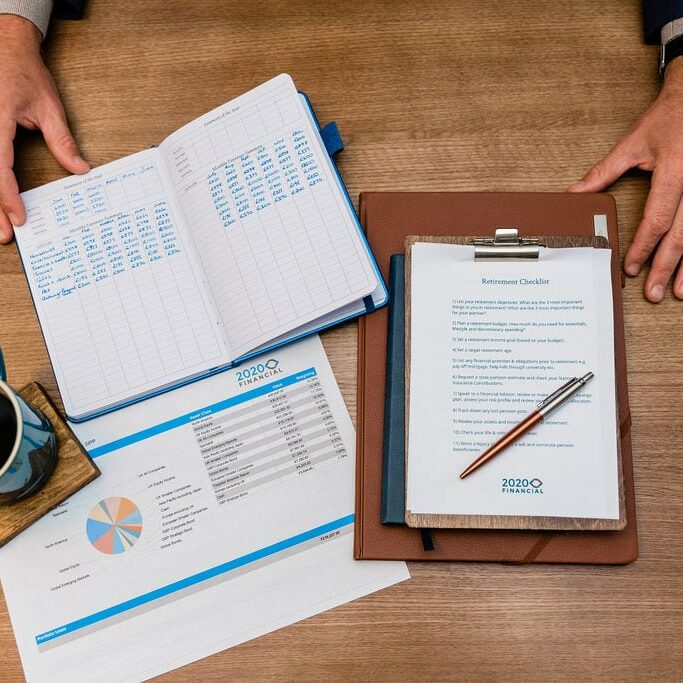If you’re considering downsizing in retirement, you’re not alone, an estimated 4.1 million pensioners over 66 plan to do so. Whether your intentions are to release equity or find a home that will suit your changing needs in retirement, the advice is to tread carefully and do your research. This handy retirement downsizing strategy guide is designed to teach you everything you need to know about Downsizing for Retirement.
“Hoping to live off the value of your home could be a downsizing delusion for millions of people,” according to Steve Webb, ex Pension Secretary and director of policy with Royal London.
A Royal London policy paper aptly named “The Downsizing Delusion” looked at the potential impact of downsizing in retirement on retirement income. They discovered that a worker on an average wage of £27,400 a year downsizing from an average detached property worth £310,000 to a smaller semi-detached home valued at £197,000, could see their income drop by half in retirement, even when you factor in the value of the full state pension.
However, according to the research from Which?, this may not be enough to fund the kind of lifestyle you were hoping for in retirement, with a comfortable retirement estimated to cost £26,000 a year on average (per couple) and a luxury lifestyle estimated at £39,000 a year. Even if both of you are in receipt of the maximum state pension (roughly £9339 a year per person), you could find yourself some way off of enjoying a good retirement income.
Funding your retirement through the sale of a property is not necessarily going to leave you impoverished in your later years but it’s really important to be aware of the pitfalls and plan ahead to avoid them.
Should you downsize when you retire?
People downsize for many reasons depending on their own personal circumstances, you might consider retirement downsizing to:
- Release equity held in your home to fund or partially fund your retirement.
- Move to a more manageable space with less upkeep.
- Reduce costs and monthly outgoings by choosing a home with lower running costs.
- Move to a more desirable area.
- Move to a warden assisted living space.
- Enjoy a different type of lifestyle.
With the UK property boom in the 80s and 90s, many people saw rising property prices as an easy way of funding their retirement.
Rightsizing definition: Reducing something to the optimum size. You may decide you need to keep the same number of bedrooms but don’t need a large garden. Alternatively, you may opt for a smaller home that suits your needs as you age
Should you downsize your home for retirement?
Annual figures from retirement property specialists McCarthy & Stone has shown that over a third (35%) of adults aged 65 and over would consider moving but that 70% of them feel that a greater focus is needed on providing suitable housing for older people
Retirement downsizing could be part of the solution to the UKs housing crisis with the research showing 2 million extra bedrooms could be freed up by people downsizing their home for retirement, which could also create a boost of £364.1bn to finances of over-65s.
This potential financial boost is one of the biggest drivers for people considering downsizing in early retirement with many planning to bump up their state pension income with equity released from the move.
Why downsize in retirement?
Before you decide whether or not to retirement downsize, firstly you should consider the financial implications. As the Royal London research has shown downsizing is not the retirement panacea many claim it to be.
You should be asking yourself
- How much will it cost to sell?
- How much will it cost to buy a suitable property?
- How much will that leave me with?
- Are there alternatives I could consider that would make more financial sense?
Add up the cost of moving including Selling and Buying such as:
- estate agent and solicitors fees
- search costs and surveys
- removal costs
- Stamp duty
- Redecorating costs
- Purchase price
Do you need pension advice before you start downsizing? Contact us for expert advice.
Average Equity by Region, UK
It’s important to work out how much equity you could potentially release before you decide to move.
Here’s what the average housing equity, all pensioners, in regions around the UK:
- North East £136,000
- North West £178,000
- Yorkshire £165,000
- East Midlands £197,000
- West Midlands £198,000
- East £276,000
- London £399,000
- South East £334,000
- South West £259,000
- Wales £179,000
- Scotland £157,000
- GB average £234,000
Will you have enough to fund your retirement?
The average pensioner household in the UK has £234,000 equity in their home. Which may sound like a lot but probably won’t be enough to fund the kind of retirement you have been dreaming of if that equity is used to buy a smaller home and support you through retirement.
In Southampton, the average flat will set you back £182,901 (Source Zoopla April 2018), using the average equity figures, if you bought a flat outright you’d only have £51,099 left and that doesn’t take into account buying and selling costs.
Using a general rule of thumb if you invested that equity to provide an income, you could expect to safely withdraw 4% per annum without running down the value of your fund in retirement – so you could withdraw £2044 per year – but that doesn’t account for investment costs so the actual amount will be lower.
The Full UK State pension is worth £9339 per year, if you’re in a couple and both in receipt of the full amount, using this example, you could feasibly have an income of around £21,922 a year by downsizing, which is still more than £4000 under the £26,000 Consumer Group Which estimate a couple will need to enjoy a comfortable retirement and well below the £39,000 they estimate you’ll need for a luxury retirement with long-haul travel, dinners out and leisure memberships.
Read our Blog: What is a good retirement income
Barriers to Downsizing
It might seem like a rational move if you’re in a larger house than you need, to move to a smaller home and free up the capital in your home.
In reality, it’s not always that easy and there are several barriers to this: –
1) Transactions costs
you’ll need to pay stamp duty on a new house purchase, if you own any other property you’ll pay a 3% excess on top of your standard stamp duty, there’s also moving costs, legal fees, surveys etc to factor in. all of which can eat into the proceeds of any sale.
2) Availability of suitable property for ‘downsizing’
The UK is facing its largest housing shortfall on record with a new for nearly 4million homes needed, according to 2018 research by Heriot-Watt University. It is a very real possibility that there may not be somewhere suitable to move to within budget or the area that you want to live in.
“Retirement” properties can be very expensive with high management charges and in many parts of the country, the price differential between a larger family home and a smaller retirement home may not be that great, especially when you take all of the costs into account.
3) Psychological / emotional barriers
Retirement can be a time of great change for many, moving out of a familiar work environment and routines, so retirees may not want to move to an unfamiliar area away from family, friends and existing networks, which may further limit the number of suitable properties available to them.
Additionally, many people want to retain spare rooms for visitors, grandchildren and family. Those used to a larger family home are unlikely to want to swap to a 1 bedroom flat and it may not make financial sense to downsize from a 4 bedroom home to a 2 or 3 bedroom house.
4) The ‘Legacy motive’
Many people are hesitant to use the money built up in their property to fund their retirement, prioritising the desire to leave money or the family home to loved ones as an inheritance over their own wellbeing. According to a Royal London Report a significant group of retirees “prefer to live more modestly than to eat into their children’s inheritance”.
Despite intentions to downsize reported to surveys, relatively few people downsize at the point of retirement, the motivation to downsize normally comes much later in retirement when a larger home becomes unmanageable or a move is forced by ill-health or disability.
This means that a different way needs to be found to access their housing wealth. b) Equity Release The most obvious way to ‘release’ some of the value of your home is to borrow against its value. This can be done in a variety of ways, and products vary according to whether repayments have to be made during the lifetime of the product, according to whether the property remains in the ownership of the home-owner or is transferred to the lender and so forth. But the basic principle is that financial products exist to help people tap in to the value of their housing wealth.
Alternative to Downsizing
Historically the alternatives to downsizing have been limited and unpalatable for many but in recent years mortgage lenders have been willing to lend to older borrowers and there is a new mortgage product on the market targeted at helping older homeowners to release equity in their property without having to downsize.
Can I remortgage to release equity?
Legally there is no maximum age to apply for a mortgage but Mortgage companies usually have their own age limits within policy rules
- When you take out the mortgage: Usually a maximum age of 65 to 80
- When the mortgage term ends: Usually a maximum age of 70 to 85
You will need to be able to prove that you have sufficient income to keep up repayments.
Equity Release – Is Equity Release Safe?
An equity release mortgage allows you to withdraw part of the share of your home that you own as a lump sum or monthly income. You could then use this to:
- Fund your retirement
- Pay off your mortgage
- Pay for a major purchase or unexpected cost
The mortgage is repaid when the house is sold, usually after the borrower has moved into a care home or passed away.
Top Tips for downsizing
If you’ve decided that Downsizing is right for you, here are out handy tips on getting the best price for your home.
- Clean, Clean and Clean some more – If you only do one thing, make it this!
- Do your Research – talk to a local estate agent and get a realistic view of the local market. Especially if you plan on updating before you move, make sure you match any changes to your potential buyer – top to toe magnolia is a big turn off for younger buyers who see it as dated.It can also help to define a use for each room – see what’s in demand, maybe your spare room could be presented as a guest room or an office.
- Declutter – Go all out Marie Kondo! and declutter your home before it goes on the market. Buyers like to see what they’re buying, and some people can’t see past your personal effects, so remove clutter, sentimental and personal items, overstuffed storage cupboards, excess furniture etc… all of this can help show off the house to its maximum potential.
- Create Kerb Appeal – don’t underestimate the effect of creating a welcoming first impression. Tidying the front of your home, removing weeds, freshening up any paint and adding some simple planting will do wonders for enticing potential buyers
- Negotiate – do your research on local estate agents and negotiate for the best deal, sellers fees are generally negotiable and even a 0.5% reduction could save you a huge amount.
- DIY Sale – If you’re considering a DIY sale, weigh up whether it is right for you – Sites like Purplebricks might seem attractive but they generally take much longer to sell and you won’t benefit from the local area knowledge or chain progression skills that a good estate agent may have. A good estate agent is worth their weight in gold.
- Optimise your property listing – Your Rightmove listing is everything!!! (Yes, other property portals exist but Rightmove have over 80% of the marketplace). Insist on professional photos (unless you’re selling a doer-upper), make sure you have a floor plan visible, provide detailed information about the home and relevant local area info i.e. Outstanding Ofsted rated schools, consider creating a video.
- Research your new home location – use the Money Super Market comparison tool, it’ll show you where you can get the most bang for your buck across the country.
Using your Tax-free Cash to pay your Mortgage
If you plan to pay off your mortgage by accessing your 25% tax-free lump sum from your pension when you reach 55, you should be aware of any inheritance tax implications of this.
Money held within your pension is normally exempt from IHT, however, once you withdraw it from your pension it becomes part of your estate and potentially liable for IHT.
Find out more about Inheritance tax thresholds and rules here.
Retirement Planning
Have a plan to maximise your money in retirement.
We’ve laid out some simple steps in retirement planning below, but if you get stuck, just reach out and one of our retirement planning specialists will be happy to help you:
- Decide what type of retirement you want to enjoy
- Set a retirement date
- Work out a retirement budget based on what feels right for you.
- Request a pension forecast – request your state pension forecast here https://www.gov.uk/check-state-pension
- Get your pension estimates – track down old pensions with the Pension Tracing Service (0800 731 0193)
- Talk to a Financial Advisor to create a retirement plan, work out how you will pay down any debt and if it’s worth consolidating any old pensions
- Put your retirement plan in action and look forward to enjoying your retirement.
- Don’t forget to periodically review your plans every year to make sure you’re on track, because circumstances can change and the earlier you respond the more time you have to course correct
Every investor will tell you that Cash is most certainly not king in the long term due to the effects of inflation that will erode its value over time. Keeping all your money in cash throughout retirement is equal to accepting a guaranteed loss on your money.
Pensions
Invest your money. Tax efficient wrapper for your money. You get tax back on your contributions at your highest tax rate – so if you’re a higher rate taxpayer you’ll receive 40% tax back but when you access your money the first 25% is tax-free and then you pay tax on the rest at your marginal rate – you have your tax-free allowance, you’ll pay 25% after that up to the higher rate tax band. So it’s an incredibly tax efficient way to save.
Funding your Pension – The Tax-back trick
If you’re wondering where and how to invest your home equity after you’ve downsized or remortgaged, you should be aware that you could receive tax back at your nominal rate
ISAs
£20,000 a year – any increases are free of capital gains and income tax



